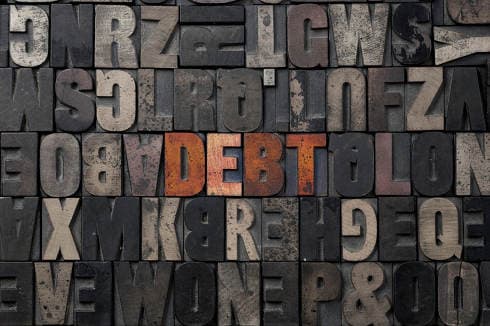Should You Pay Off Collection Accounts or Pay Down Debt?

Get rid of your debt faster with debt relief
Choose your debt amount
Or speak to a debt consultant 844-731-0836
Is it better for my credit score to lower my credit utilization, or pay off old delinquent debt?
Would it be more beneficial to my credit score to use some extra money I have and pay off 3 credit cards that I currently have active (never been late on any of them, but the balances are close to the credit limit), or, would I see a better benefit to my credit score by using the money and paying off 3 older/charged off collections accounts that show on my credit? I'm not sure if resolving the collections items would help since the damage has already been done. Unsure which direction is best.
Excellent question. Using a windfall to knock down your current balances will have a higher impact on your credit score than paying off old, delinquent accounts. Here’s why:
Your FICO score consists of five components, each having a different weight. This table describes the five parts in a FICO score calculation:
| Factor | Description | Weight |
|---|---|---|
| Payment History | Making consistent debt payments on time has a positive influence on your score, and late or missed payments will hurt you. The older the delinquency, the less impact it has. | 35% |
| Credit Utilization | How much debt you have compared to the total available credit on your accounts. | 30% |
| Length of Positive History | The longer you maintain accounts in good standing, the better your score will be. | 15% |
| Credit Mix | Diverse types of credit, such a credit cards, consumer loans, and secured debt, has a positive influence on your credit score. | 10% |
| New Credit Applications | Applying for too much new credit in a short time period indicates you could be credit risk. | 10% |
FICO score calculation at a glance. Source: Bills.com
Your question asks us to weigh two major factors in a FICO score: Payment History and Credit Utilization. As we see in the table above, your history carries the most influence on your FICO score.
However, the damage to your payment history took place when your accounts went severely delinquent. Paying them off now won't improve your score. The derogatory accounts have less effect on your score as time passes. These accounts should drop off your credit report on their own, 7 years after the date of first delinquency.
The bottom line is that paying off or settling these accounts will not have a positive impact on your score.
Reducing Your Debt Helps Your Credit Score
Paying down your debt is the fastest way you can improve your score. When you pay down your credit card balances, you improve your credit utilization. As the chart above illustrates, credit utilization accounts for 30% of your FICO score. That is a bit less than your Payment History, but changing your credit utilization is the item that you can control that has the biggest positive impact on your score.
Good Credit Score is Not Enough
Quick Tip
Overwhelmed by debt? Talk to a Bills.com debt resolution partner to learn more about your debt resolution options.
Your question focused on your credit score. Your score is just one part of a lender’s assessment of your creditworthiness. A potential lender may elect to include the old, charged-off debt in its debt-to-income ratio calculations. Or, it may see the outstanding, unpaid debt as an huge red flag indicating you are a poor credit risk. A high credit score is not a promise you will find a loan.

Get rid of your debt faster with debt relief
Take the first step towards a debt-free life with personalized debt reduction strategies.
Choose your debt amount
Or speak to a debt consultant 844-731-0836
There is also an account that was opened 08/2012 on my report. I did not open any account with this company, and have never had any sort of account with them. I disputed it through Experian, but if it comes back that I have to keep it how do I prove that its really not mine?
Go to AnnualCreditReport.com and download a copies of your credit reports from Equifax, Experian, and TransUnion. These reports will show the FCRA Compliance/Date of First Delinquency date for any derogatory accounts you may have.
Regarding the account mistakenly attributed to you, if Experian, Equifax, or TransUnion continue to report this inaccuracy, you will need to follow the steps we outline in our Method of Verification article.